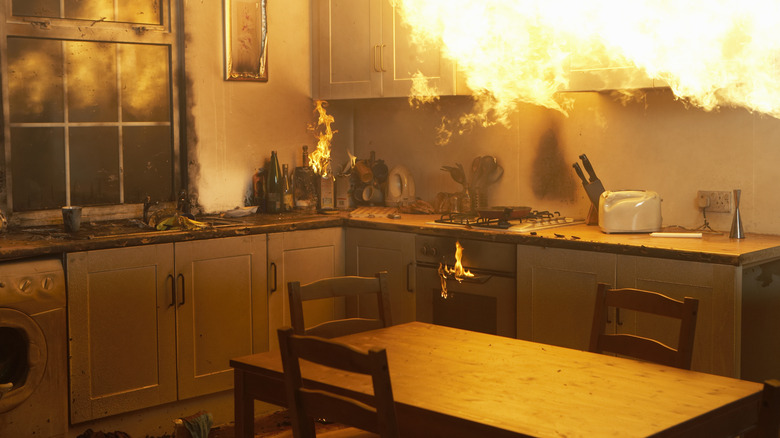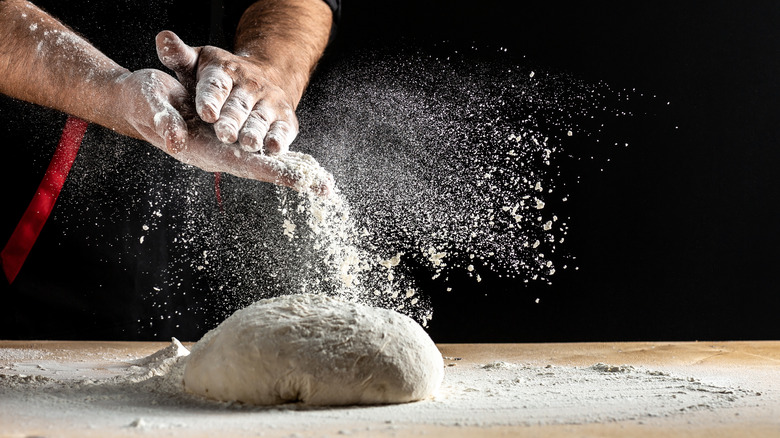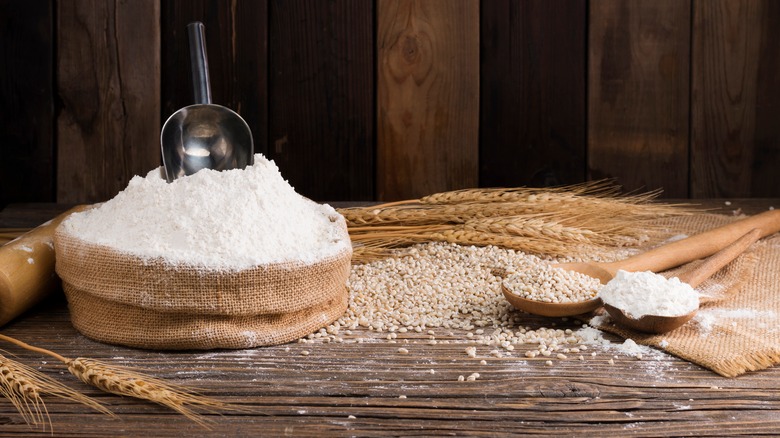The Baking Ingredients You Didn't Know Were Fire Hazards
Taking safety precautions when baking your favorite meals is extremely important, and since baking involves fire and heat, we want to make sure we don't burn our food or worse, our house down. Of course, there are common factors that you should always make sure are handled before cooking, such as ensuring your oven is clean, always attending to your food as it's cooking, never placing metal in a microwave, etc. But other common household cooking ingredients are also highly flammable as well.
Believe it or not, flour can cause your house to go up in flames if you aren't taking the proper safety precautions in your kitchen. In fact, many powdery substances can pose a threat as fire hazards, such as non-dairy creamers, spices, and dried milk will also catch fire if not attended to properly. This doesn't mean you shouldn't cook with these ingredients or use them in any way; you just have to make sure you're using the proper safety precautions.
How powdered substances catch flame
Normally flour, and other powdery substances, aren't much of a fire hazard, and the reason for that is that grains of flour are so small that they burn up almost instantaneously when lit. However, the problem starts when that flour gets in the air. Have you ever opened up a flour package and a bunch of dust enveloped the space around you, leaving white powder spreading across the room? That stuff is exactly what can cause house fires.
If there is an open flame near the flour when you open it and the powder is floating through the air, the moment one grain catches on fire, it will start to spread very rapidly to the other grains around it, causing an explosion to occur. As mentioned, this can happen with any other powdery substance you open near the flame, whether it be spices, powdered milk, or anything else.
Safety precautions to take
Luckily, one can take certain safety precautions to ensure that your flour doesn't catch fire or cause an explosion inside your home. For one, you can make sure you have all the flour you need out and ready to use before you ignite a flame or other heating source. This will help ensure there is no excess flour in the air that might accidentally catch fire. You can also make sure that your stovetop, oven, grill, or whatever you use to cook is also free of loose powder.
Another vital thing to remember is that if your flour does catch on fire and the fire spreads to another part of your kitchen or house, do not pour water on it. This will only increase the chance that the fire will continue to spread and possibly cause further damage. Always use a fire extinguisher when dealing with these issues, and call your local fire department to get help as soon as possible. Although it's not common for flour or other powdered substances to catch fire in homes, it's not impossible, and your safety should be your utmost priority.



